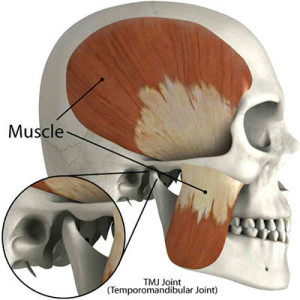Is your mouth having a click or popping sound when you open it? Does it give you headache or painful experience? If yes, you’re probably suffering from sneaky TMD syndrome. Doctors and other dental experts otherwise termed this as Temporomandibular Joint Syndrome or the TMJ.
Whatever you call, TMD or TMJ gives pain results to your mouth and oral health. This sneaky disorder highly impacts your jaw. The simple movements you make can be difficult if you have this disorder. TMD is a popular dysfunction of jaw that can affect your speech, swallowing and chewing routines. The great news is you can alleviate and overcome this disease.
The most sensible way to spot TMD is to determine its symptoms. Truth is, there’s no certain or specific cause of TMD disorder. However, there are factors recognized that seem to cause or trigger this condition. As we all know, TMJ is the clicking and popping of jaw when you open your mouth. The primary factor that causes this is stress. Dental professionals stated that TMD has links with jaw and muscle injuries. This can lead to chronic headache, neck and facial pain. If left untreated, this could cause jaw arthritis.
Other warning indicators or symptoms identified are tensions and clenching or grinding or teeth. Teeth grinding or also known as bruxism puts pressure on jaw joints. It generates stress and unwanted strain that can tighten your facial muscles, leaving your teeth susceptible to bite problems, like overbite. This is the primary cause why dentists linked TMD to malocclusion. TMD symptoms also include chronic jaw or fain pain, severe dental caries or cavities, earaches, neck or shoulder pain and jaw locking. If you are unable to open your mouth wide and suffer from strange dizziness, you might also have TMD disorder.
Fortunately, dentists and other dental practitioners can offer us various TMD treatments. After going through some tests, like detailed check of your dental history and oral examinations, you will learn the most appropriate therapy for your condition. Some TMD therapies offered are stretching exercising for jaw, pain relievers and anti-inflammatory medications that can make your muscle relax and prevent anxiety. If your dentist finds your TMD case as an effect of bruxism, he will suggest a splint or night guard. Night or mouth guards are popular dental appliances used to prevent your teeth from clenching throughout the day. Dental braces also are part of TMD therapies. This corrective dental treatment can correct your uneven teeth and improper jaw.
Always bear in mind that only your dentist can see whether or not you have TMD disorder. Before you resort to the aforesaid therapies, schedule a check first. Your dentist will conduct a number of dental assessments to ensure you have this condition and to perceive the root cause of this problem. To guarantee a successful treatment for TMD, employ a professional and reputable dentist.
TMD therapies aren’t necessary, remember that. For you to avoid all the hassles provided by Temporomandibular Joint Syndrome, seek 24 hour dental service now.